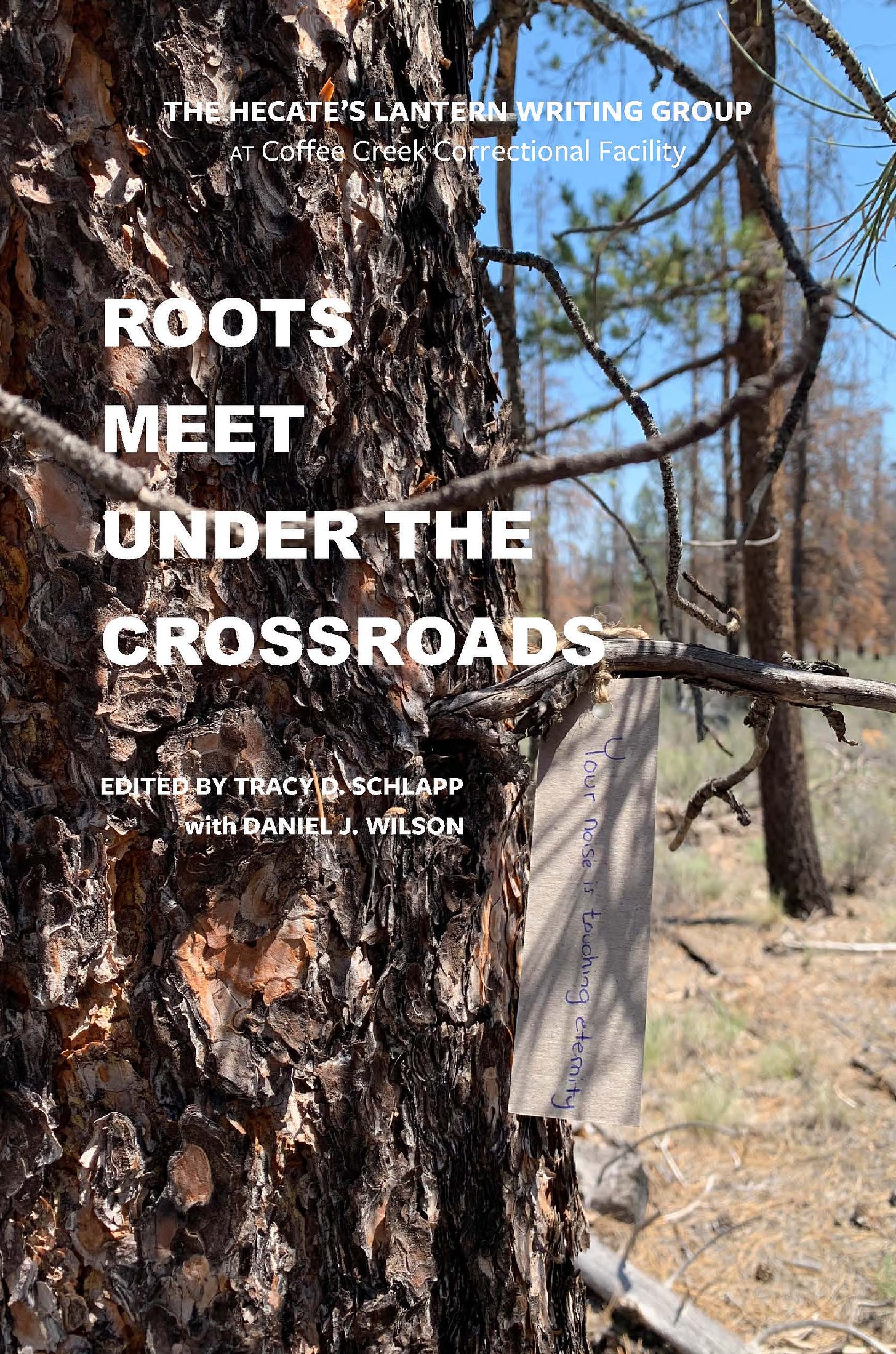This week we publish the third part of our chapbook, Roots Meet Below the Crossroads that features writing from our Hecate’s Lantern group at Coffee Creek Correctional Facility.
We run this program in the medium side of the prison where the people in our group are serving the longest part of their sentences. The building has a central corridor with workspaces, classrooms, a chapel that holds about 100 people, and an industrial kitchen. There is no central yard or dining hall which means the population is contained in six smaller units. The population crosses if they share work details, are enrolled in similar programs and classes, or worship together. The women sleep either celled or in dormitory-style bunks in these wings. This dormitory unit provides them with a classroom, a small yard, tables and attached stools, laundry facilities, showers and toilets. Correctional Officers are stationed at command station in each of the dorms to observe the prisoners. Meals are served in the central corridor — imagine a cafeteria on wheels. Hot food is rolled out of the kitchen and set up in the hall. Unit by unit, the people line up with a tray and pick up food that is taken back to their unit and eaten in the unit’s collective space.
When we come into to run our workshop, we use a classroom in one of the units (rather than a larger classroom on the central corridor.) Members of our group are given a call-out to come to our meeting. If they are not on the call-out they can not come — even if we are walking right past their bunk in the same unit. Any book or journal we give our participants needs pre-approval and a signed sticker placed inside it. If we would like to take our group out to the yard (to say observe the eclipse), we need to obtain special permission from the Correctional Officers who are overseeing that unit that day. Because we have people from different units in our group, the answer tends to be no. Since the pandemic, staffing has been particularly difficult for DOC; therefore, their have been frequent lockdowns, which means a prisoners need to stay in their cells or in their bunks (with permission they may go to the toilet, but no showers, or use of the common space.)
This preamble is to set the stage as we introduce our Crocheting Grannie, Carolyn Stickley who has become a frequent contributor to the PonyXpress. Carolyn entered prison in her 70s and will be serving nine years. She is literally binding herself to the outside world of children and grandchildren through her writing and the soft, pliable yarn she uses in her crochet.
In Evergreen Crossroads, Gina Baker courageously writes about a dark point of her life and how divinity brought her back to life, binding her to her faith. This is work may be difficult for some readers.
We meet with our group the second Saturday of every month, always a joyful reunion. This past week, we added some new writers to our cohort. Sadly, one of our group decided to move along and happily, another member will transfer to minimum (one step closer to joining her family on the outside.) With this new configuration of writers, we are planning on making another chapbook to publish in the spring. We started the session writing about the eclipse and shadow. In our discussion, we explored how shadow brings form to the world, so we might better distinguish the beauty in it. | TDS


